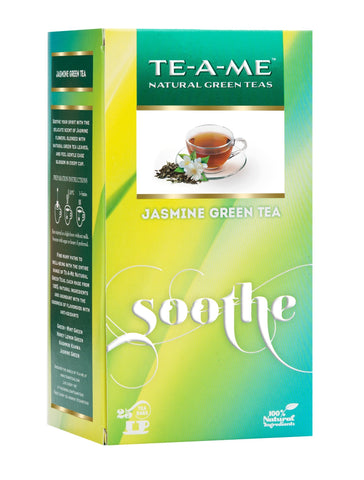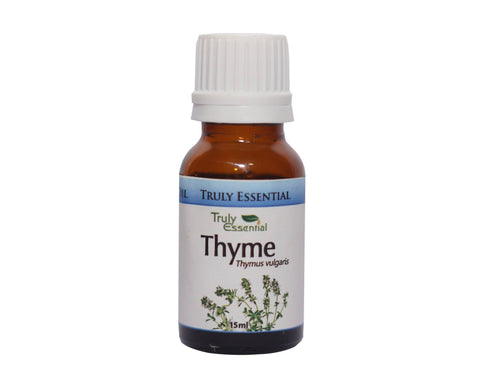
Thyme is a seemingly delicate herb with a penetrating fragrance from the mint family. It has been part of medicine and cuisine for centuries and is a native of southern Europe and Mediterranean regions. Ancient Egyptians used thyme in their embalming practices. The Romans, who used thyme for aromatic flavoring of alcoholic beverages and cheese, also used its healing attributes to treat melancholy. Recent studies prove that this herb is packed with numerous phyto-nutrients (plant derived compounds), minerals and vitamins that are health benefiting and essential for overall wellness. Thyme has multifarious uses, such as elaborated below.
- Powerful Anti-Oxidant
Thyme contains many flavonoid phenolic antioxidants like zea-xanthin, lutein, pigenin, naringenin, luteolin, and thymonin. Loaded with antioxidant capacity combined manganese, which is used by the body as a co-factor for the antioxidant enzyme, superoxide dismutase, make thyme a super antioxidant food. It is one of many natural liver detox foods. Vitamin-A is a fat-soluble vitamin and an antioxidant that is helpful for maintaining healthy mucus membranes, clear skin and also essential for vision. It is best used in its fresh state as then it has one of the highest antioxidant levels among herbs.
Green tea infused with jasmine helps to relax as well as provides antioxidants to the body, click here to know more
- Lowers Blood Pressure
Research proves that thyme helps to significantly lower the heart rate and also able to reduce cholesterol. One simple and effective way to use thyme is to substitute it for salt in food fully or partially. Potassium is an important constituent of cell and body fluids, which help to control heart rate and blood pressure; and thyme, can be substituted for salt to provide the body with adequate amount of potassium.
Control blood pressure to promote heart health, click here to know more
- Prevents and Protects from Respiratory Diseases
Research suggests that consumption of thyme alone or in combination with various other herbs helps to prevent and relieve people from upper respiratory tract infections, bronchitis, cough, sore throat and common cold. The healing effect of thyme is attributed to its volatile oil components carvacolo, borneol, geraniol, and most importantly, thymol. Traditionally also it is used as a natural medicine for chest and respiratory problems.
Prevent respiratory problems naturally, click here to know more
- Antimicrobial
Studies show that the volatile oil components of thyme, mainly thymol possess antimicrobial nature against a host of different bacteria and fungi, such as staphalococcus aureus, bacillus subtilis, escherichia coli and shigella sonnei. It is used on the body directly in diluted form to treat fight bacterial and fungal infections in the affected areas.
- Effective against Acne
The other volatile essential oils in thyme are carvacolo, borneol, and geraniol which have anti-septic and anti-fungal applications along with thymol it makes an effective anti - acne remedy.
Thyme oil with tea tree oil makes an excellent combination to deal with oily skin, prone to breakouts, to know more click here
- Provides Oral Care
Thyme oil is included as a germ killing component in oral care products such as toothpaste, mouthwash etc. Thymol with another chemical, chlorhexidine, is used as a dental varnish to prevent tooth decay. Its presence in mouthwash and toothpaste helps to treat bad breath, caries and gingivitis.
- Used as a Disinfectant and Pesticide
Thyme has many disinfectant, fungicide and pesticide properties. It helps to ward off mold – a dangerous air pollutant. It is also used to fight bacteria and viruses, as well as rats, mice, and other animal pests. Study show that thyme extract can repel mosquitoes too.
Use natural floor cleansers to keep the house mosquito free, click here to know more
- Important in Aromatherapy
The essential oil of thyme has an active substance called carvacrol, which is known to affect neuron activity in ways that it acts as a stress buster and boosts the feelings of well-being. Thus when used in aromatherapy, its positive effects on mood is experienced. Thyme’s pleasant aroma extends its usage in perfumery and skin care products.
Use thyme essential oil to relieve stress, click here to know more
- Food Ingredient
Thyme is a wonderfully aromatic and flavorful ingredient that is used in native cuisine of France, Italy, and the Mediterranean. Fresh leaves or whole sprigs are used to add color and taste to the foods.
Know more about thyme and its usage to add flavor to your food, click here to know more
Thyme is a highly fragrant and pleasant plant to grow within a garden. It is small in size thus convenient to grow. And since it is packed with minerals and vitamins that are essential for optimum health, household care and mood elevator, make sure to include it in your herb garden.




